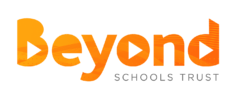Skip to content
- Learners develop detailed knowledge and skills across the curriculum and, as a result, achieve well. Where relevant, this is reflected in results from national tests and examinations that meet government expectations.
- Learners are ready for the next stage of education. Where relevant, they gain qualifications that allow them to go on to destinations that meet their interests, aspirations and the intention of their course of study. They read widely and often, with fluency and comprehension.
- Teachers and leaders use assessment well, for example to help learners embed and use knowledge fluently or to check understanding and inform teaching. Leaders understand the limitations of assessment and do not use it in a way that creates unnecessary burden for staff or learners.
- From their different starting points, all children will make at least good progress and achieve their potential academically, emotionally, creatively, socially and physically. Knowledge, understanding and skills will be secured and embedded so that children attain highly.
- Students will have strong communication skills, both written and verbal, and will listen respectfully and with tolerance to the views of others.
- Students will demonstrate emotional resilience and the ability to persevere when they encounter challenge.
- Students will be kind, respectful and honest, demonstrate inclusive attitudes, have a strong moral compass and have a sense of what their role is in our wider society.

